Last few days, China launched an offensive which started with European tour from his head of diplomacy, Wang Yiwho was then warmly welcomed by the President of Russia, Vladimir Putinin Moscow.
Beijing has also made two publications about its position on the Ukrainian conflict. The first document proposes a solution to the war, while the other describes a plan for world peace.
Both have largely supported the talking points that China has promoted over the past year, calling for respect for sovereignty (Ukraine) and protecting national security interests (Russia), while opposing the use of unilateral sanctions (such as US sanctions).
This may not impress the West, but persuading was probably never the main goal from Beijing.
China’s interests
First of all, the Asian country seeks to position itself as a global peacemaker.
The obvious clue to who he is really trying to convince is in one of his papers where he mentions the unification of Southeast Asia, Africa and South America, the so-called Global South.
when you preach alternative vision of the world order led by the USABeijing is courting the rest of the world as they watch the West handle the Ukraine crisis.
But another goal send a clear message to the United States.
“There is an element of challenge”said Alexander Korolev, an expert on Sino-Russian relations at the University of New South Wales, Australia.
sends you a signal [a EE.UU.] guy: “If something goes wrong between us, I have someone to turn to. Russia is not alonewhich means I won’t be alone when confrontation arises… don’t feel comfortable bothering me’”.
The current moment, analysts say, is indicative. U.S.-China relations hit a new low, exacerbated by suspected spy balloons.
Some also doubt that China has not yet made serious diplomatic efforts to achieve peace in Ukraine.
“China had ample opportunities to show leadership, it was invited from the very beginning to help end the war … If the goal was really to demonstrate the image of a world leader, he would not need to hang around for a year and then try to do the — diplomatic dance,” suggested Korolev.
There was also a third target, and this was evident from the route Wang followed.
Visiting France, Germany, Italy and Hungary, whose leaders Beijing sees as taking the least hard line on Russia, Wang may is testing the waters to see if China can lure part of Europe into its orbit of influence.
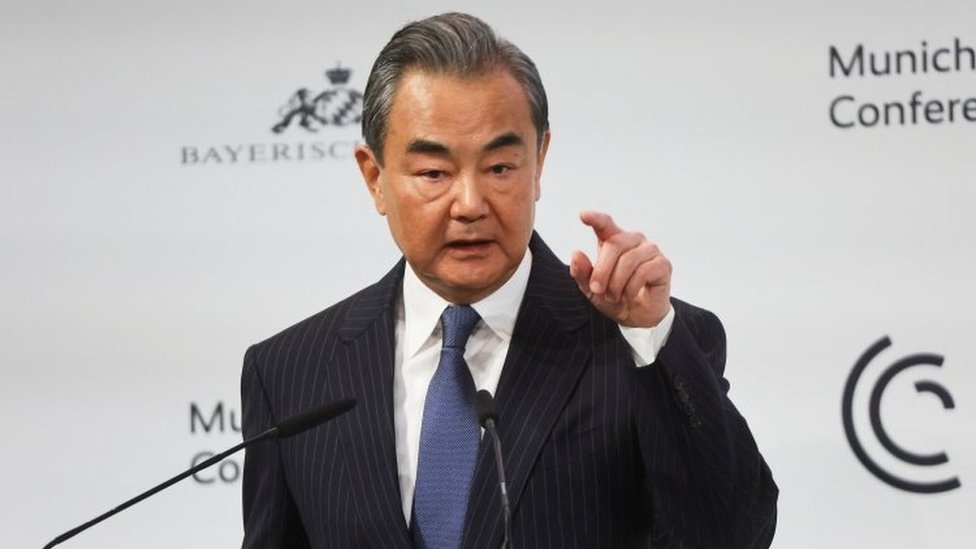
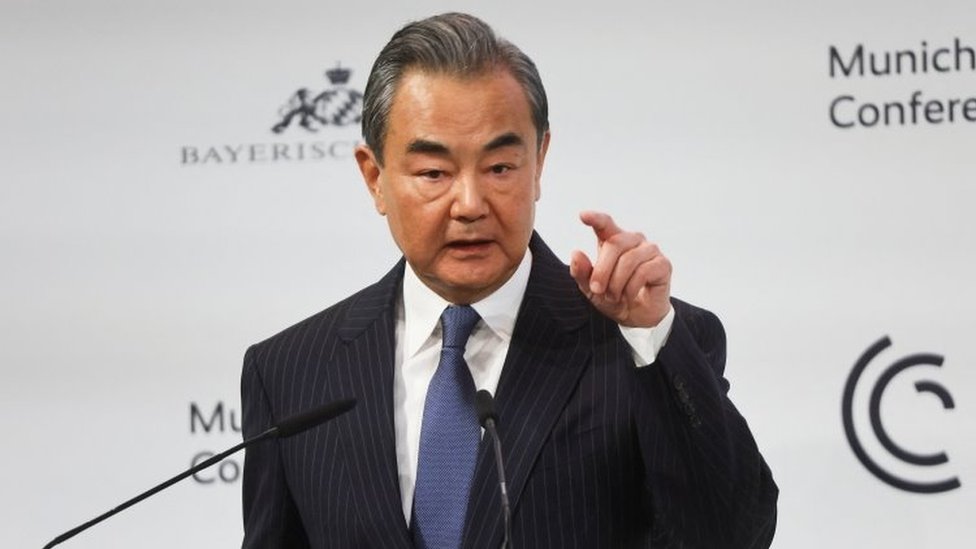

Beijing is experiencing a “logical convergence of interests” with these countries, said Zhang Xin, an international political economy expert at East China Normal University.
“He believes that the US has hegemonic power and that much of the transatlantic world could benefit from leaving this system.”
But it is not clear whether China will succeed in achieving this particular goal.
Wang’s speech at the Munich Security Conference, in which he criticized the United States, didn’t work well in a room full of the most loyal allies Washington.
And, according to diplomats, this only added to the distrust of China’s true motives.
His tour “was a very open push to say, ‘We don’t have a problem with Europe, we have a problem with the US. We can negotiate with you Europeans, and you must understand that the US is leading you “on a rocky path,” said Andrew Small, a specialist in Europe-China relations at the German Marshall Foundation think tank.
“But I think in most of Europe this message doesn’t have much of a foothold.”
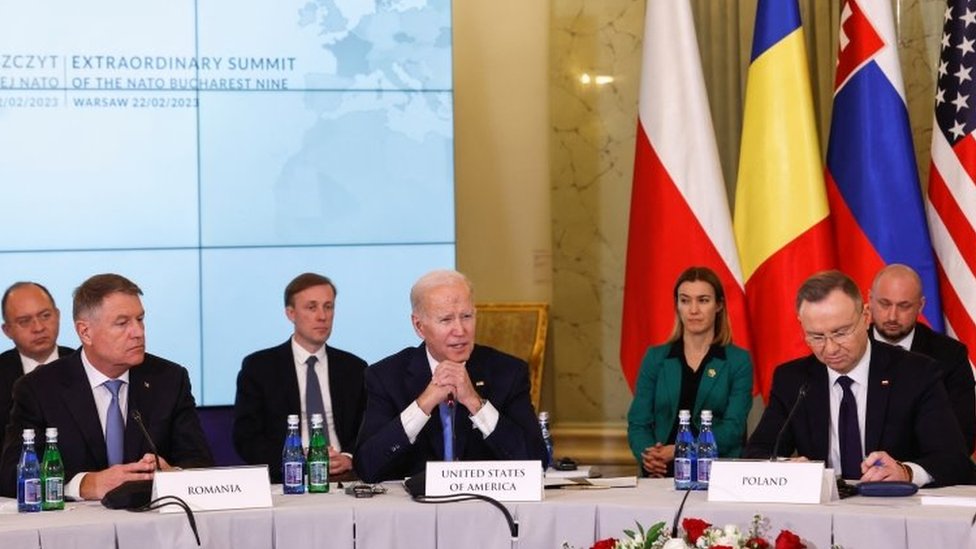
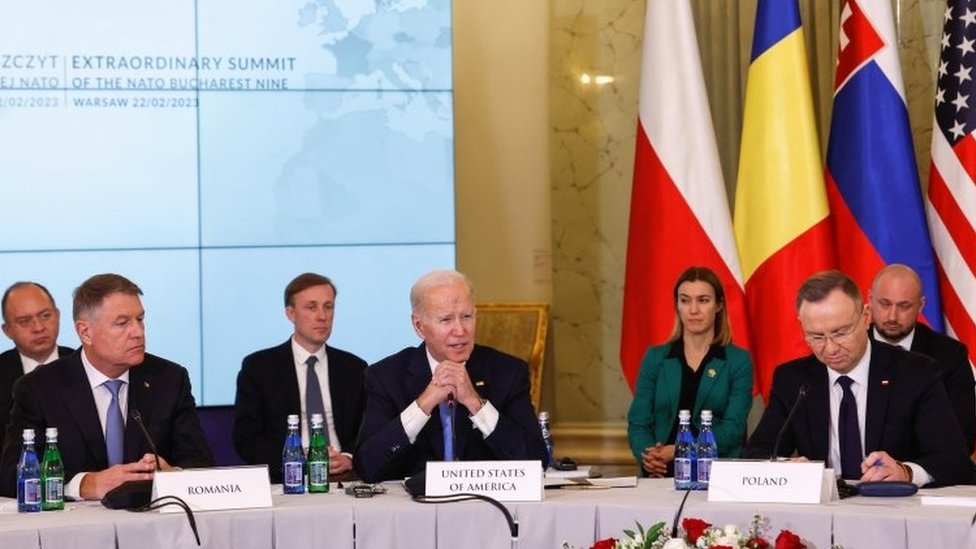

The key question now is whether Beijing will keep its promise to make amends by stepping up support for Russia.
Beijing supports Moscow
The United States warned this week that China was considering supply lethal weapons to Russia and that Chinese companies have already supplied non-lethal dual-use technologywhich can be used in both civil and military applications, as well as drones and semiconductors.
China publicly denied this with angry rhetoric. And behind closed doors, Vanga made it clear that they would not supply weapons to Russia.
Wang also questioned why the West was concerned about China’s arms transfers when Ukraine is already receiving such support.
Analysts say this says a lot about how Beijing still sincerely believes that the West is to blame about prolonging the war.
“Sending weapons to any belligerent is considered a further escalation, this is the position of the Chinese state until now,” Zhang said.
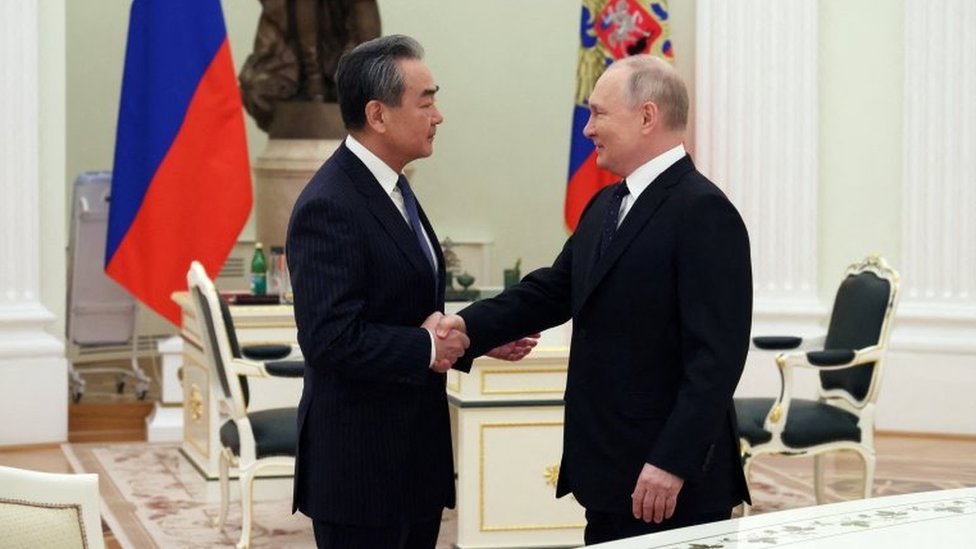
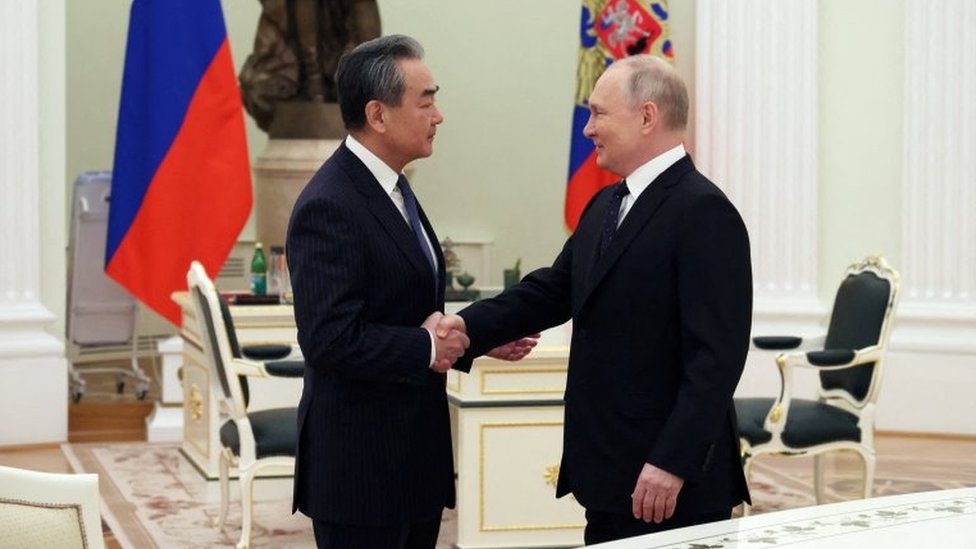

Also skeptical is the idea that Beijing wants to supply weapons to Moscow, as this is contrary to China’s interests.
Such a move will be perceived by others as clear escalation of the war and this would lead to sanctions and stop trade with the West, which would be very harmful for China, since the EU and the US are one of its main trading partners.
It will also greatly heighten global tensions and likely push US allies to move closer in ranks, preventing Beijing from flirting with some of them to challenge Washington.
Analysts say it is most likely that for Beijing to continue or even increase Moscow’s indirect supportincluding economic trade, which has been a financial lifeline for Russia.
They may even be supplying more dual-use technology through third-party countries like Iran or North Korea so that they can provide support that they will try to disprove as much as possible, Small said.
But as the war drags on, the issue of transferring deadly weapons will resurface, Small warned.
“There was still no question about what big things China could be asked for because before Russia didn’t need to resupply,” Small said. “But they reach this point. How long is China willing to tell Russia it won’t?“.
A few days before the start of the war in Ukraine, Xi Jinping and Vladimir Putin said they had “friendship without borders”.
A year later, China will have to answer the question of how far it will go for its special friend.
You can now receive notifications from BBC Mundo. Download the new version of our app and activate them so you don’t miss out on our best content.
Source: La Opinion
Alfred Hart is an accomplished journalist known for his expert analysis and commentary on global affairs. He currently works as a writer at 24 news breaker, where he provides readers with in-depth coverage of the most pressing issues affecting the world today. With a keen insight and a deep understanding of international politics and economics, Alfred’s writing is a must-read for anyone seeking a deeper understanding of the world we live in.
